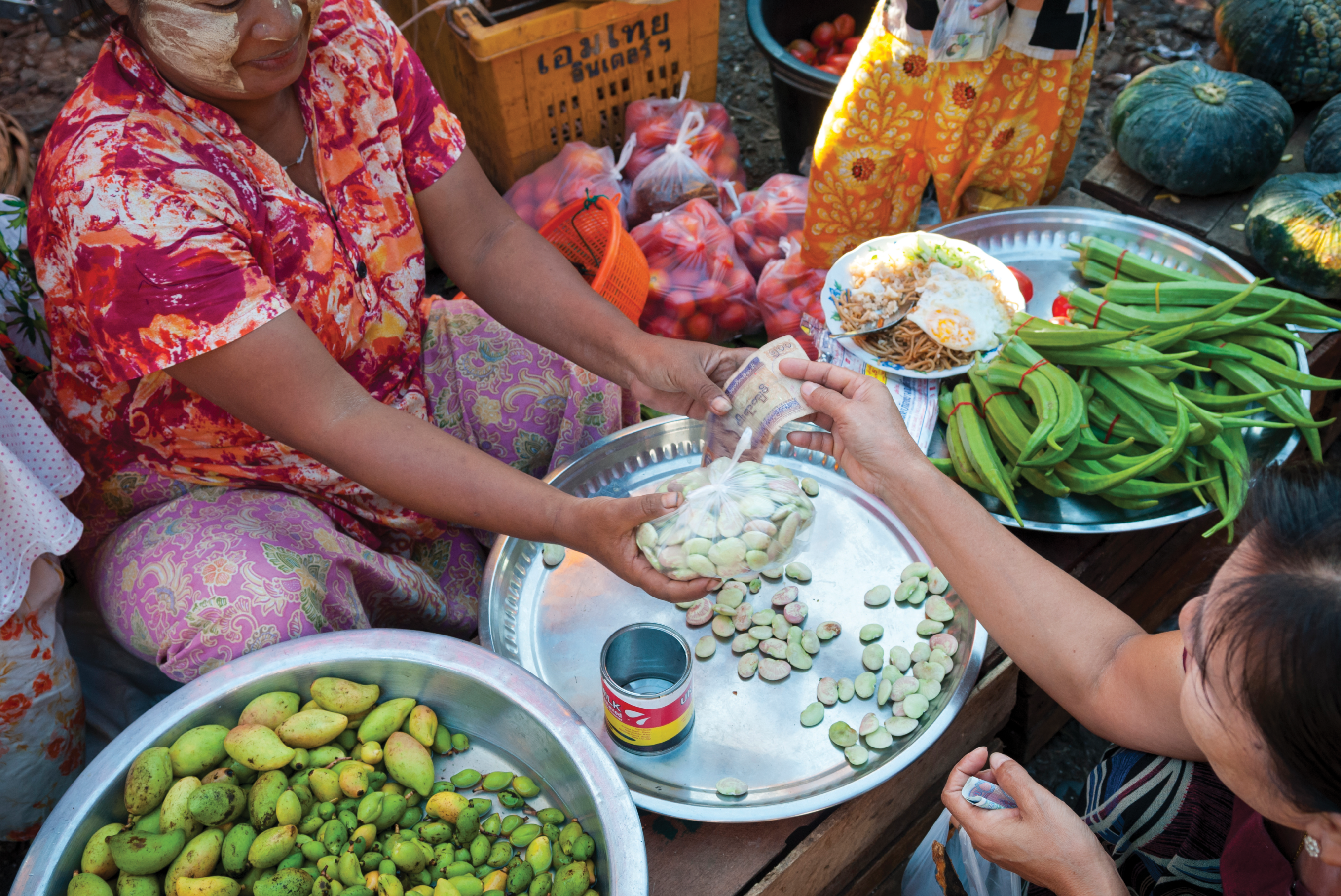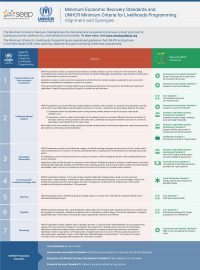Apr 2, 2018 | by Sonya Salanti

The SEEP Network and the United Nations High Commission on Refugees (UNHCR) hosted a joint webinar on applying the Minimum Economic Recovery Standards and Minimum Criteria for Livelihoods in economic inclusion programming for refugees and persons of concern.
A strategic shift is taking place in livelihood programming aimed at supporting the needs of refugees. This shift emphasizes a multi-stakeholder approach and shared responsibility for refugee resilience and self-reliance. Among livelihoods practitioners, this translates to humanitarian and economic development actors working together to develop tools and approaches that facilitate enabling environments for refugees and other persons of concern to integrate into the local economy.
The Minimum Economic Recovery Standards and UNHCR’s Minimum Criteria for Livelihoods Programming (Minimum Criteria) are two such complementary tools for strengthening the quality and effectiveness of economic solutions for vulnerable populations. Recently, the SEEP Network and UNCHR hosted a joint webinar for UNHCR’s country livelihoods officers focused on these resources.
UNHCR’s approach to economic inclusion is strategic and provides resources, guidance and technical support for livelihoods and economic inclusion programs implemented by partners at the country level. The Minimum Criteria are designed to improve both the quality and cost-effectiveness of such programs and ensure that activities implemented by partners are market-oriented and results-based. The MERS represent an industry consensus on best practices for economic recovery in crisis environments. Together, the MERS and the Minimum Criteria are powerful tools for designing market-oriented pathways to self-reliance and resiliency for refugees and persons of concern.
The webinar began with opening remarks from Ziad Ayoubi, Senior Livelihoods Officer at UNHCR. Mr. Ayoubi, who also served on the steering committee for the most recent revision of the MERS, identified MERS as both a major push in moving toward more market-oriented programming at UNHCR and key guidance in the development of the Minimum Criteria.
Ellen Lee, Livelihoods Monitoring Associate, UNHCR provided an overview of the seven Minimum Criteria and mapped the areas where the criteria were informed by or align with the MERS. She also discussed the value and intent of the Minimum Criteria, which are designed to:
Check out this one-pager, which shows how specific MERS guidance informs and aligns with the Minimum Criteria.

Sarah Ward, Independent Consultant, Markets, Livelihoods and Resilience and Senior Advisor for MERS with the SEEP Network, gave a concise and informative overview of the MERS, highlighting their applicability to the design and implementation of livelihoods programming. She also discussed the evolution of the MERS as the most effective market-driven tool for a shifting landscape in livelihood programming including the advent of cash programming and organizations, like UNHCR, who have taken on the idea of market access and are now working within the markets that refugees are functioning in.
Line Astrom, Senior Regional Livelihoods Officer, UNHCR, Southern Africa, shared challenges, opportunities and experiences from the field on applying the Minimum Criteria in practice. Though buy-in, expertise, cost and legal restrictions present challenges in adoption of the Criteria in Southern Africa, preliminary data shows promising results for compliance. Based on projections of planned activities, nearly all the countries in the region (comprised of Botswana, Malawi, Mozambique, Namibia, South Africa, Zambia and Zimbabwe) are expected to reach nearly 100% compliance by 2018. This presents opportunities for the Criteria to be used for advocacy, contribute to professionalization, and ensure institutionalization of the Criteria across activities and programs.
The last fifteen minutes were devoted to a lively discussion and questions from participants. Discussion topics included timeline of monitoring activities and impact assessments, aligning existing program strategies with the MERS and the Minimum Criteria and complying with the Minimum Criteria in more restrictive contexts.
Through this and other joint webinars, SEEP and UNHCR will continue to build a strong partnership aligned around the shared goal of exemplary livelihoods programming guided by practitioner-informed guidelines. We invite you to learn more about MERS at this website and click here to explore UNHCR’s livelihoods programming and the Minimum Criteria for Livelihoods.
The SEEP-UNHCR webinar on the Minimum Criteria is one of a series of webinars that will be jointly hosted between SEEP and UNHCR over the next several months. Sign up for SEEP’s newsletter and keep checking SEEP’s event calendar to stay informed.
Sonya Salanti is Senior Program Manager, Resilient Markets at the SEEP Network.
Categories: Economic Strengthening and Recovery Fragile and Conflict-affected Environments Livelihoods Resilient Markets English Blog Resilient Markets Blog Disaster Risk Reduction WebinarsBlogs

1621 North Kent Street, Ste 900,
Arlington, VA, 22209
P 202.534.1400
F 703.276.1433
Website Photos: © mari matsuri
